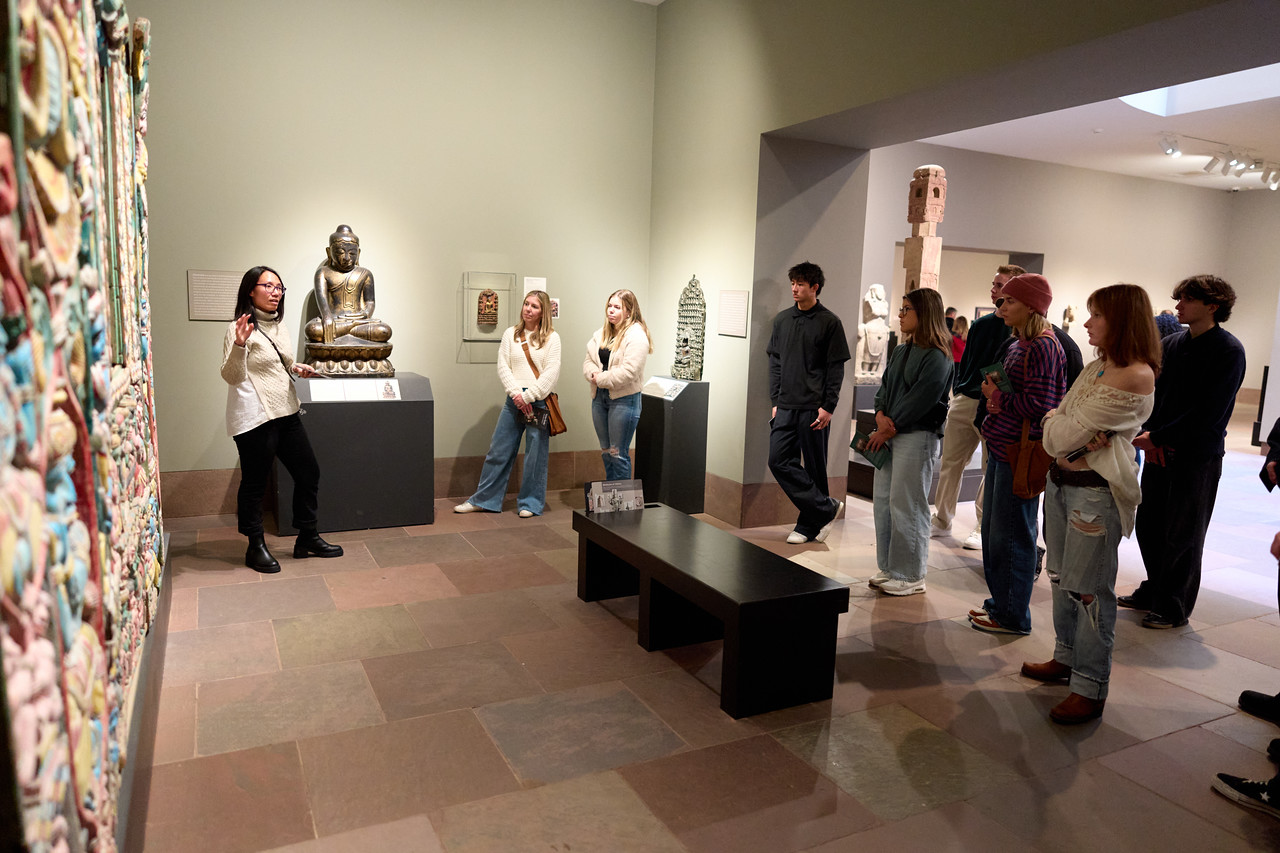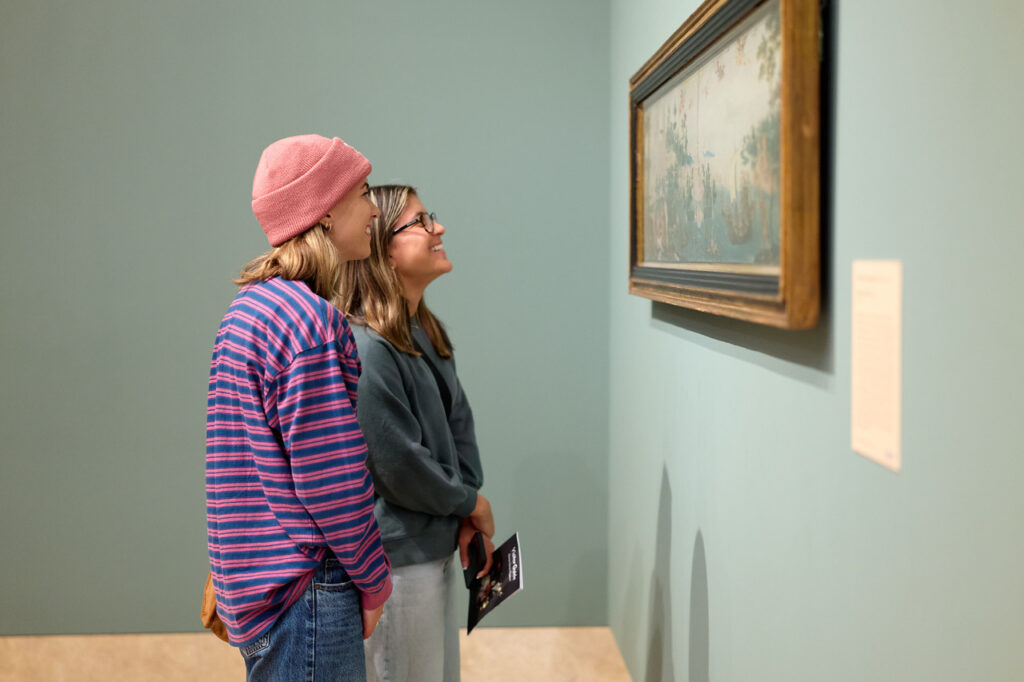
This spring, as part of Professor Melody Rod-ari’s: Who Owns Art? First Year Seminar course, students were able to visit the Norton Simon Museum in Pasadena. The seminar examines the history of collecting art, as well as specific ongoing cultural patrimony cases, so it was crucial for Rod-ari’s students to receive this opportunity to visit a museum that is currently engaged in discussions about art repatriation.
“This class allows our students to get off the bluff and take advantage of the cultural institutions here in Los Angeles,” said Rod-ari. “One of the major reasons that students come to LMU is to experience all of the things that our city has to offer, so we try to visit institutions that are relevant to our class. It’s important for our students to see what they’re learning here at LMU is reflected in the real world.”
First Year Seminars (FYS) are a signature course of the LMU Core Curriculum. These seminars are intimate, discussion-based courses designed to provide students with an introduction to the spirit of academic excellence and intellectual rigor of LMU. Rod-ari’s own research interest in art repatriation stems from her career as a museum curator prior to LMU.
“During my time as a curator, I was part of a major cultural repatriation case with the country of Cambodia,” said Rod-ari. “I realized that nothing in any of my studies in my B.A,. M.A., or Ph.D. had prepared me for the realities of working in a museum today, which is that countries will be asking for those objects to be returned. I knew that as a professor, I wanted to train my students to be prepared for their professional careers after graduation.”
Rod-ari is a sought-after expert in the field of art repatriation. In November 2023, she was invited by the Smithsonian’s National Museum of Asian Art to speak about her research into the topic of repatriation of Thai cultural heritage. Now, her FYS course is inspiring the next generation of artists and curators to be critical about where art comes from and the ethical considerations of exhibiting art.

Studio arts major Rachel Novak ‘27 is a student in the course. For her, the seminar has opened her eyes to another dimension of the art world that she had not previously considered.
“As an artist myself, I’m now thinking about where your art goes after you create it, whether you dictate where it’s going or who you’re selling it or donating it to,” said Novak. “It’s interesting to consider how the meaning of your art changes. The Norton Simon visit gave me a new perspective on museums. It makes you think about who is affected, maybe negatively, by the museum’s ownership of the art, so it was really interesting to take that perspective into account instead of just appreciating art for its different aesthetics.”
Rod-ari’s course is also intentionally designed to teach students how to think critically about art and to examine the topic of art repatriation from multiple, nuanced vantage points.
“We do readings every week, and we analyze different perspectives [on art repatriation],” said Walter Bridgewater IV ‘27, a screenwriting and studio arts double major. “So we are looking at the looting of art from the perspectives of lawyers, archaeologists, and art historians. It opens our minds and worldview of where the art should ultimately be placed.”
The analytical tools gained in this FYS will serve students well in whatever course of study and career they ultimately choose. For the final project, Rod-ari asks students to research an object that is currently in contention at a museum, an assignment that is designed to hone their research and writing skills.
“This allows them to think about current cultural heritage conventions and laws. Every year that this class is taught, there’s something different happening politically and culturally in the world that also informs their argument,” said Rod-ari. “Ultimately, this course prepares them for whatever professional careers they might be interested in in the future, be it art history or law. It gets them to think about the multiple vantage points they should be looking at when making a strong argument.”
For more information on First Year Seminars, please visit the Core Curriculum website.



